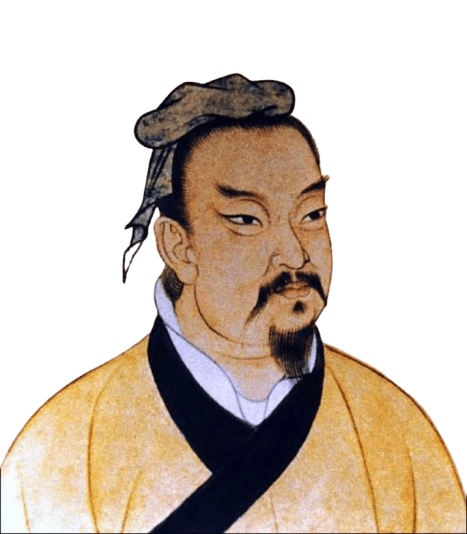Life and achievements
Early life
Sun Tzu, or Sun Wu, was born around 544 BC in the late stages of the Chinese Spring and Autumn Period. The specific birthplace of this strategist has yet to be well known; some historians believe he was born in the state of Qi, while others think he was from Wu. Little is known about his early life, but it is assumed that he was born into a military family, which defined his later life in military strategy and tactics.
Sun Tzu was born when war and political instability were the norms in his society, which is why he was introduced to military science at an early age. He learned about strategy and tactics and how to use spies in war. He had a profound knowledge of these subjects, and through this, he came up with what we know today as "The Art of War," a book that is still referenced to this day as one of the most essential books on military strategies.
It is assumed that Sun Tzu may have been a mercenary or a soldier for hire during his early life. He gained his reputation as a strategist and soon came to the attention of King Helü of Wu. King Helü realized that Sun Tzu was a great strategist and invited him to the court as a military strategist. This was the start of Sun Tzu's contribution to Wu's military achievements.
Legacy
Sun Tzu's contribution to the world is mainly associated with the book The Art of War, a thirteen-part work that offers guidelines on warfare and strategies, among other things. It is based on the critical concepts of flexibility, disguise, and psychological influence to attain the goal. Sun Tzu's idea of winning the war without even engaging in actual combat is still considered relevant and vital by the military strategists of the present age.
The influence of "The Art of War" does not only apply to the military field. It has been used in business, politics, and even sports, among other areas. The work has been translated into many languages and is still considered one of the fundamental texts in military academies. Today, Leaders and strategists refer to Sun Tzu's work to understand conflict management and strategic thinking.
Over the years, many leaders and influential people have been influenced by the guidelines given by Sun Tzu in his book. For instance, Mao Zedong attributed the success of the Chinese Civil War to applying Sun Tzu's strategies in his book. Likewise, military strategists such as Napoleon Bonaparte and General Douglas MacArthur have confessed the influence of Sun Tzu's strategy in their warfare. This indicates that the lessons in "The Art of War" still apply today.
Besides his input in military strategy, Sun Tzu's works have permeated cultural and philosophical spheres. His focus on balance, structure, and planning also aligns with the Chinese philosophy system, including Taoism and Confucianism. This cultural integration also helps establish Sun Tzu as one of the most important personages in Chinese history.
Milestone moments
Jun 19, 512
Sun Tzu Goes to the Kingdom of Wu and Meets King Helü
Sun Tzu entered the service of King Helü of Wu, and this is where his military career can be said to have started.
King Helü of Wu was informed of the great strategist Sun Tzu and invited him to help the kingdom enhance its military power.
When Sun Tzu entered the court, he was expected to prove his military skill, which led to the story of the king's concubines training.
This battle assured Sun Tzu's status and position as an advisor and general to King Helü.
Aug 19, 506
Success at the Battle of Boju
Sun Tzu commanded the Wu army to triumph against the state of Chu in the Battle of Boju.
This battle illustrated Sun Tzu's genius and why he is considered one of the greatest strategists in history.
The battle of Boju enabled Wu to gain more territory and power and increased Sun Tzu's standing even further.
Thus, Sun Tzu's victory in this battle proved the efficiency of the strategies described in "The Art of War."
Jan 19, 409
Finishing of "The Art of War"
Sun Tzu finished writing "The Art of War," one of the most cited books on war.
The work also addresses planning, strategy, tactics, and the employment of spies.
Compared to other military works of the period, it focused on flexibility, fraud, and manipulating the enemy's mind.
Sun Tzu's work, "The Art of War," has been adopted and referenced by many military generals and strategists for centuries, thus making Sun Tzu famous.
Aug 19, 478
Impact on the Chinese Military Thought
The text "The Art of War" received recognition and application from Chinese military strategists and scholars.
The principles of Sun Tzu were applied in the training and strategies of the different states during the Warring States Period.
The treatise's focus on the strategic mind and psychological warfare appealed to commanders who wanted to outwit their opponents.
Sun Tzu's work helped enhance the ancient Chinese military's strategies and made them more efficient.
